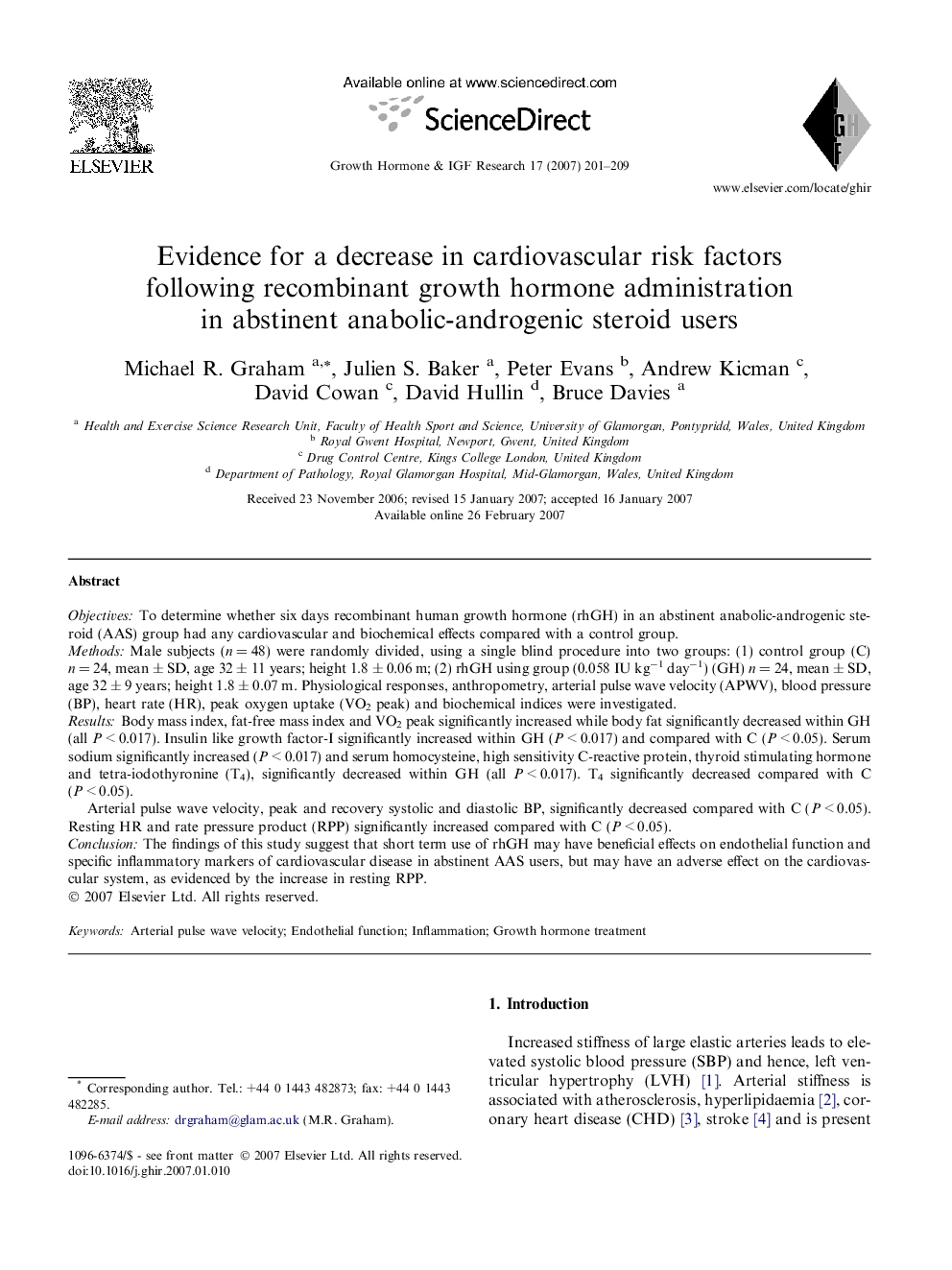| Article ID | Journal | Published Year | Pages | File Type |
|---|---|---|---|---|
| 2803635 | Growth Hormone & IGF Research | 2007 | 9 Pages |
ObjectivesTo determine whether six days recombinant human growth hormone (rhGH) in an abstinent anabolic-androgenic steroid (AAS) group had any cardiovascular and biochemical effects compared with a control group.MethodsMale subjects (n = 48) were randomly divided, using a single blind procedure into two groups: (1) control group (C) n = 24, mean ± SD, age 32 ± 11 years; height 1.8 ± 0.06 m; (2) rhGH using group (0.058 IU kg−1 day−1) (GH) n = 24, mean ± SD, age 32 ± 9 years; height 1.8 ± 0.07 m. Physiological responses, anthropometry, arterial pulse wave velocity (APWV), blood pressure (BP), heart rate (HR), peak oxygen uptake (VO2 peak) and biochemical indices were investigated.ResultsBody mass index, fat-free mass index and VO2 peak significantly increased while body fat significantly decreased within GH (all P < 0.017). Insulin like growth factor-I significantly increased within GH (P < 0.017) and compared with C (P < 0.05). Serum sodium significantly increased (P < 0.017) and serum homocysteine, high sensitivity C-reactive protein, thyroid stimulating hormone and tetra-iodothyronine (T4), significantly decreased within GH (all P < 0.017). T4 significantly decreased compared with C (P < 0.05).Arterial pulse wave velocity, peak and recovery systolic and diastolic BP, significantly decreased compared with C (P < 0.05). Resting HR and rate pressure product (RPP) significantly increased compared with C (P < 0.05).ConclusionThe findings of this study suggest that short term use of rhGH may have beneficial effects on endothelial function and specific inflammatory markers of cardiovascular disease in abstinent AAS users, but may have an adverse effect on the cardiovascular system, as evidenced by the increase in resting RPP.
